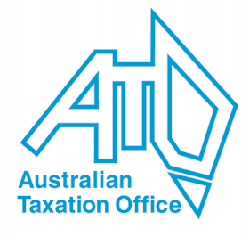Setting Aside Statutory Demands issued by the Commissioner of Taxation – an Update
For good policy reasons the Commissioner of Taxation enjoys a privileged position as a creditor. Australian taxation laws provide that certain administrative acts by the Commissioner are conclusive evidence of the existence of a debt by the taxpayer.1 If served with a statutory demand issued by the Commissioner, in all but the rarest of cases, it is unlikely that a taxpayer will be able to establish that there is a “genuine dispute”. This means that applications to set aside statutory demands2 served by the Commissioner relying on section 459H(1) Corporations Act 2001 are of little utility to the corporate debtor. Nevertheless, section 459J(1)(b) Corporations Act 2001 attempts to mitigate the strict application of the Commissioner’s evidentiary advantage by permitting a Court to set aside a statutory demand in circumstances where “there is some other reason why the demand should be set aside”. A number of recent cases have developed the jurisprudence on the exercise of the Court’s discretion in the context of section 459J(1)(b). Before looking at those developments, I will briefly touch on two earlier decisions that have dealt with the issue.
 Though the statutory demand was not set aside, in Hoare Bros Pty Ltd v DCT3 the Full Federal Court began the development of the scope of section 459J(1)(b). After referring to the explanatory memorandum accompanying the Corporate Law Reform Bill 1992, which introduced the statutory demand provisions, the Full Court considered that section 459J(1)(b) was a general power for which it would be unwise to attempt to mark out the limits of the discretion.4 The subsection enabled the Court to take account of matters such as improper or invalid service and mistakes or misstatements in the notice of demand, in circumstances where this would significantly prejudice any party. After referring to the General Insolvency Inquiry discussion paper,5 the Full Court considered that the subsection would also be available where a creditor unreasonably refuses the company’s offer to meet the debt. The Full Court also apparently endorsed the proposition that the discretion might be exercised in the company’s favour, had it been shown that the Commissioner’s conduct was unconscionable, or an abuse of process, or that it had given rise to substantial injustice.6
Though the statutory demand was not set aside, in Hoare Bros Pty Ltd v DCT3 the Full Federal Court began the development of the scope of section 459J(1)(b). After referring to the explanatory memorandum accompanying the Corporate Law Reform Bill 1992, which introduced the statutory demand provisions, the Full Court considered that section 459J(1)(b) was a general power for which it would be unwise to attempt to mark out the limits of the discretion.4 The subsection enabled the Court to take account of matters such as improper or invalid service and mistakes or misstatements in the notice of demand, in circumstances where this would significantly prejudice any party. After referring to the General Insolvency Inquiry discussion paper,5 the Full Court considered that the subsection would also be available where a creditor unreasonably refuses the company’s offer to meet the debt. The Full Court also apparently endorsed the proposition that the discretion might be exercised in the company’s favour, had it been shown that the Commissioner’s conduct was unconscionable, or an abuse of process, or that it had given rise to substantial injustice.6
In Moutere v Deputy Commissioner of Taxation,7 after agreeing with the approach of the Full Court in Hoare Bros, Austin J observed:
“The policy underlying s459H is that the statutory demand procedure should not be used to coerce a person to pay a disputed amount. A statutory demand is not an instrument of debt collection. By analogy, the Commissioner should not use the statutory demand procedure to supply coercive pressure to a taxpayer who genuinely objects to the Commissioners decision. To do so would be to take unfair advantage of those provisions of the taxation legislation (such as s14ZZMM and s14ZZT of the Taxation (Administration) Act which say that an amount owing in consequence of the Commissioner’s decision is recoverable, notwithstanding that an objection has been lodged against the decision. If the Commissioner decides not to await the outcome of the objection, the proper course will often be for him to take proceedings for recovery of the debt rather than to summon up the spectre of liquidation by issuing a statutory demand. If the Court forms the view that the Commissioner has acted oppressively or unfairly by issuing a statutory demand in such circumstances, the appropriate course is for the Court to set the demand aside under s459J(1)(b). By doing so the Court does not deny that the debt is recoverable although an objection has been made, but it thereby insists that the statutory demand procedure should not be used to apply pressure for payment of an amount which might ultimately be found not to be payable.”
Having considered the basic premises upon which the discretion is exercised, it is appropriate to consider the recent cases.
 In Softex Industries Pty Ltd v Federal Commissioner of Taxation,8 relevantly, the Commissioner had served a statutory demand on Softex in the sum of $15,302,967.42. The demand related to unpaid sales tax, income tax, fringe benefits tax, tax instalment deductions and amounts owing under a business activity statement. The applicant disputed payment of the sales tax and income tax, for which the respondent had demanded $10,337,091.09 and $4,066,819.70 respectively. Relevantly, Softex applied for an order setting aside the statutory demand relying on 459J(1)(b).
In Softex Industries Pty Ltd v Federal Commissioner of Taxation,8 relevantly, the Commissioner had served a statutory demand on Softex in the sum of $15,302,967.42. The demand related to unpaid sales tax, income tax, fringe benefits tax, tax instalment deductions and amounts owing under a business activity statement. The applicant disputed payment of the sales tax and income tax, for which the respondent had demanded $10,337,091.09 and $4,066,819.70 respectively. Relevantly, Softex applied for an order setting aside the statutory demand relying on 459J(1)(b).
Part of the income tax itemised in the statutory demand related to payments which the applicant had received between 1993 and 1996 under a Federal Government scheme. The Commissioner had provided a private ruling in respect of payments made under the scheme that the payments were assessable as income or as capital gains. Softex lodged an objection which was subsequently disallowed by the Commissioner. Softex applied to the AAT for a review of the objection decision and, at the time of the hearing in relation to the statutory demand, the AAT had not delivered its decision.
After referring to Moutere, the Court considered that it was oppressive for the Commissioner to serve a statutory demand that incorporated an amount that was the subject of an objection and a reserved decision by the AAT.9 In such circumstances the exercise of the discretion to set aside the statutory demand for “some other reason” was justified.
As an aside, the court also held that there was no provision for a variation of the statutory demand under section 459J(1)(b). In other words, if the statutory demand comprises claims for amounts that are not able to be challenged under section 459(1)(b) the Court must set aside the demand and cannot vary the demand.
 In Willemse Family Company Pty Ltd v Deputy Commissioner of Taxation,10 the Deputy Commissioner issued an amended notice of assessment that disallowed a deduction claimed by Willemse. Willemse objected to the assessment. That objection in turn was disallowed. Willemse then appealed against the objection decision. Not long after that the Deputy Commissioner filed and served its claim and statement of claim seeking the amount of the applicant’s income tax liability the subject of the objection process. Shortly after that the Deputy Commissioner obtained judgement in default against Willemse. Based on the default judgement, the Deputy Commissioner served its statutory demand under s459E.
In Willemse Family Company Pty Ltd v Deputy Commissioner of Taxation,10 the Deputy Commissioner issued an amended notice of assessment that disallowed a deduction claimed by Willemse. Willemse objected to the assessment. That objection in turn was disallowed. Willemse then appealed against the objection decision. Not long after that the Deputy Commissioner filed and served its claim and statement of claim seeking the amount of the applicant’s income tax liability the subject of the objection process. Shortly after that the Deputy Commissioner obtained judgement in default against Willemse. Based on the default judgement, the Deputy Commissioner served its statutory demand under s459E.
Willemse applied to the Court, relevantly, to have the statutory demand set aside relying on s459J(1)(b). After referring to Hoare Bros, Moutere, and Softex, Holmes J took a somewhat wider approach to the exercise of the discretion in saying:
“The instances of unconscionability, abuse of process and production of substantial injustice referred to in Hoare are no more than examples of matters which may impel an exercise of discretion in favour of an applicant; but the discretion is by no means confined to those particular circumstances. But in the present case, where the applicant has on foot an appeal which is at least arguable and which would, if successful, have the consequence that the bulk of the amount in respect of which the statutory demand is made would not be payable, it does seem to me that there is an injustice in permitting the statutory demand procedure to go forward. Accordingly I conclude that there is ‘some other reason why the demand should be set aside’.” 11
In KW & KM Quinn Investments Pty Ltd v Deputy Commissioner of Taxation12 the Deputy Commissioner issued a statutory demand for unpaid tax and interest. Quinn Investments applied to set the demand aside under section 459J(1)(b). The company had done little to challenge the assessments. The solicitor for the company gave unimpeached evidence of the company’s intention to challenge the assessments by applications for review to the Administrative Appeals Tribunal. There was also evidence of other taxpayers in a similar position having applied in “test cases” for review that were awaiting a decision. In respect of the exercise of the discretion under 459J(1)(b) McMurdo J, at first instance, said:
“In an appropriate case, a court will protect a company against a misuse of the process by setting aside the demand. That process could be misused where the statutory demand is used to coerce payment and to unfairly defeat the company’s genuine exercise of its statutory rights to challenge an assessment of income tax. Accordingly the court has a discretion to set aside the demand on s 459J where the circumstances include the existence of a genuine dispute as to the correctness of the assessment and the taking of appropriate steps by processes of objection or appeal to set it aside. Even given those circumstances, the company has no right to have the demand set aside, as under s 459J there is a broad discretion which must be exercised having regard to all relevant circumstances.”13
Whilst the evidence of objecting to the assessment was not more than an intention to appeal to the Administrative Appeals Tribunal, Quinn Investments had at the core of its reasons the potential for the company’s tax assessments to be revealed as incorrect by virtue of the out come of the test cases. His Honour went on:
“In the present circumstances, the continued reliance upon the statutory demand would be unfair to the applicant if the applicant clearly intends to pursue its proposed challenge to these assessments. In such a case, for the commissioner not to await the outcome of the applicant’s challenge, when it is awaiting the decision of the tribunal in the case of other taxpayers which is likely to show the correctness or otherwise of the subject assessments, would involve a misuse of the statutory demand process.” 14
The appeal against the decision of McMurdo J was dismissed.15 On the appeal,16 the Court of Appeal found that it was open to McMurdo J to be satisfied that it was unjust to permit the statutory demand procedure to be used in circumstances where there was no evidence that the applicant was unable to pay its debts as they fell due and there was some likelihood that the decision of the AAT in respect of other taxpayers would also resolve the liability of the applicant. Importantly, the Court of Appeal also approved the wide approach to the exercise of the discretion as formulated by Holmes J in Willemse.17
The general proposition to be extracted from the above is that, the Court, through the medium of section 459J(1)(b) will not permit the Commissioner to use the statutory demand procedure to apply pressure to a taxpayer who genuinely objects to the Commissioner’s decision. The challenge18 for those seeking to set aside a statutory demand issued by the Commissioner is to first, show that there are genuine steps being taken by the company to object to the assessments upon which the demand is based; second, show that there are good prospects that the objections or appeals will actually determine the question of liability under the income tax assessments; and third; in that context, show that the Commissioner’s conduct in issuing a statutory demand can be described as unconscionable, an abuse of process or result in the production of substantial injustice.
Richard Schulte
Footnotes
- See, for example, in the context of notices of assessment FJ Bloemen Pty Ltd v FCT (1981) 147 CLR 360; at 375; Hoare Bros Pty Ltd v DCT (1996) 62 FCR 302; at 314.
- See Corporations Act 2001, s 459G.
- (1996) 62 FCR 302.
- (1996) 62 FCR 302 at p 317.
- ALRC, General Insolvency Inquiry (DP 32, 1987, para 114).
- (1996) 62 FCR 302 at p 317.
- (2000) 34 ACSR 533 at p 538.
- (2001) 187 ALR 448.
- (2001) 187 ALR 448 at p 461.
- [2003] 2 Qd R 334.
- [2003] 2 Qd R 334 at p 345.
- (2003) 202 ALR 335
- (2003) 202 ALR 335 at 337.
- (2003) 202 ALR 335 at 339.
- KW & KM Quinn Investments Pty Ltd v Deputy Commissioner of Taxation [2004] QCA 091.
- Per Davies JA (with whom Fryberg and Philippides JJ agreed).
- See [2003] 2 Qd R 334 at p 345.
- See for example, Rocket Transport Services Pty Ltd v Deputy Commissioner of Taxation of the Commonwealth of Australia [2006] WASC 234; Vitalia Pty Ltd v the Deputy Commissioner of Taxation of the Commonwealth of Australia [2005] WASC 179.




 Though the statutory demand was not set aside, in Hoare Bros Pty Ltd v DCT3 the Full Federal Court began the development of the scope of section 459J(1)(b). After referring to the explanatory memorandum accompanying the Corporate Law Reform Bill 1992, which introduced the statutory demand provisions, the Full Court considered that section 459J(1)(b) was a general power for which it would be unwise to attempt to mark out the limits of the discretion.4 The subsection enabled the Court to take account of matters such as improper or invalid service and mistakes or misstatements in the notice of demand, in circumstances where this would significantly prejudice any party. After referring to the General Insolvency Inquiry discussion paper,5 the Full Court considered that the subsection would also be available where a creditor unreasonably refuses the company’s offer to meet the debt. The Full Court also apparently endorsed the proposition that the discretion might be exercised in the company’s favour, had it been shown that the Commissioner’s conduct was unconscionable, or an abuse of process, or that it had given rise to substantial injustice.6
Though the statutory demand was not set aside, in Hoare Bros Pty Ltd v DCT3 the Full Federal Court began the development of the scope of section 459J(1)(b). After referring to the explanatory memorandum accompanying the Corporate Law Reform Bill 1992, which introduced the statutory demand provisions, the Full Court considered that section 459J(1)(b) was a general power for which it would be unwise to attempt to mark out the limits of the discretion.4 The subsection enabled the Court to take account of matters such as improper or invalid service and mistakes or misstatements in the notice of demand, in circumstances where this would significantly prejudice any party. After referring to the General Insolvency Inquiry discussion paper,5 the Full Court considered that the subsection would also be available where a creditor unreasonably refuses the company’s offer to meet the debt. The Full Court also apparently endorsed the proposition that the discretion might be exercised in the company’s favour, had it been shown that the Commissioner’s conduct was unconscionable, or an abuse of process, or that it had given rise to substantial injustice.6 In Softex Industries Pty Ltd v Federal Commissioner of Taxation,8 relevantly, the Commissioner had served a statutory demand on Softex in the sum of $15,302,967.42. The demand related to unpaid sales tax, income tax, fringe benefits tax, tax instalment deductions and amounts owing under a business activity statement. The applicant disputed payment of the sales tax and income tax, for which the respondent had demanded $10,337,091.09 and $4,066,819.70 respectively. Relevantly, Softex applied for an order setting aside the statutory demand relying on 459J(1)(b).
In Softex Industries Pty Ltd v Federal Commissioner of Taxation,8 relevantly, the Commissioner had served a statutory demand on Softex in the sum of $15,302,967.42. The demand related to unpaid sales tax, income tax, fringe benefits tax, tax instalment deductions and amounts owing under a business activity statement. The applicant disputed payment of the sales tax and income tax, for which the respondent had demanded $10,337,091.09 and $4,066,819.70 respectively. Relevantly, Softex applied for an order setting aside the statutory demand relying on 459J(1)(b). In Willemse Family Company Pty Ltd v Deputy Commissioner of Taxation,10 the Deputy Commissioner issued an amended notice of assessment that disallowed a deduction claimed by Willemse. Willemse objected to the assessment. That objection in turn was disallowed. Willemse then appealed against the objection decision. Not long after that the Deputy Commissioner filed and served its claim and statement of claim seeking the amount of the applicant’s income tax liability the subject of the objection process. Shortly after that the Deputy Commissioner obtained judgement in default against Willemse. Based on the default judgement, the Deputy Commissioner served its statutory demand under s459E.
In Willemse Family Company Pty Ltd v Deputy Commissioner of Taxation,10 the Deputy Commissioner issued an amended notice of assessment that disallowed a deduction claimed by Willemse. Willemse objected to the assessment. That objection in turn was disallowed. Willemse then appealed against the objection decision. Not long after that the Deputy Commissioner filed and served its claim and statement of claim seeking the amount of the applicant’s income tax liability the subject of the objection process. Shortly after that the Deputy Commissioner obtained judgement in default against Willemse. Based on the default judgement, the Deputy Commissioner served its statutory demand under s459E.